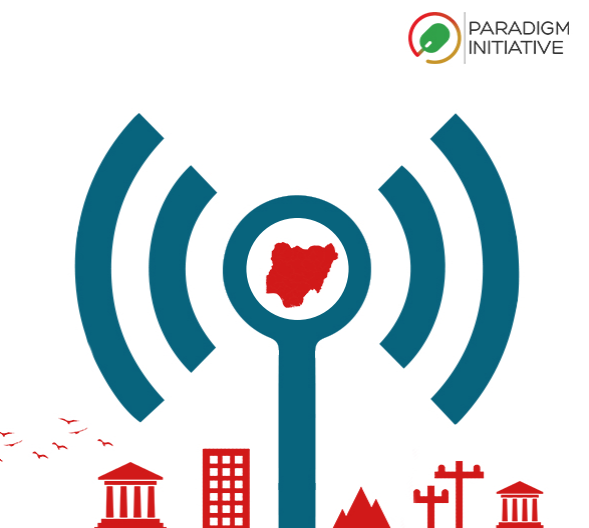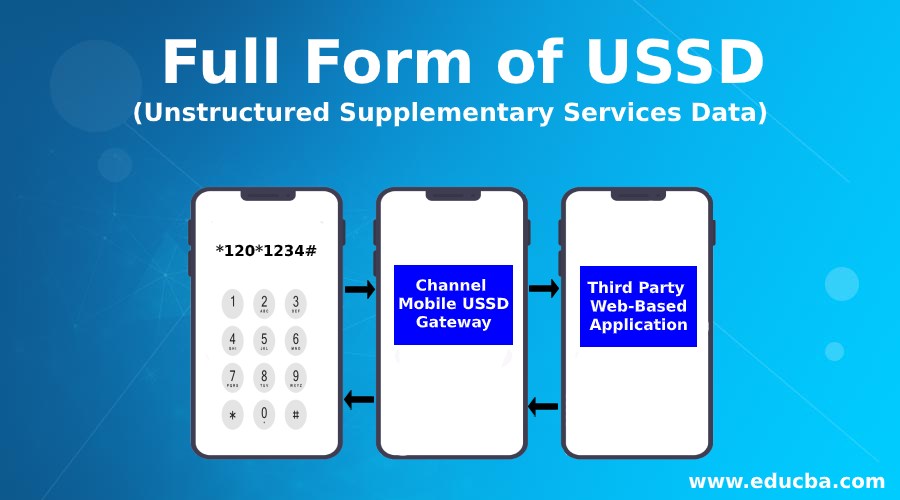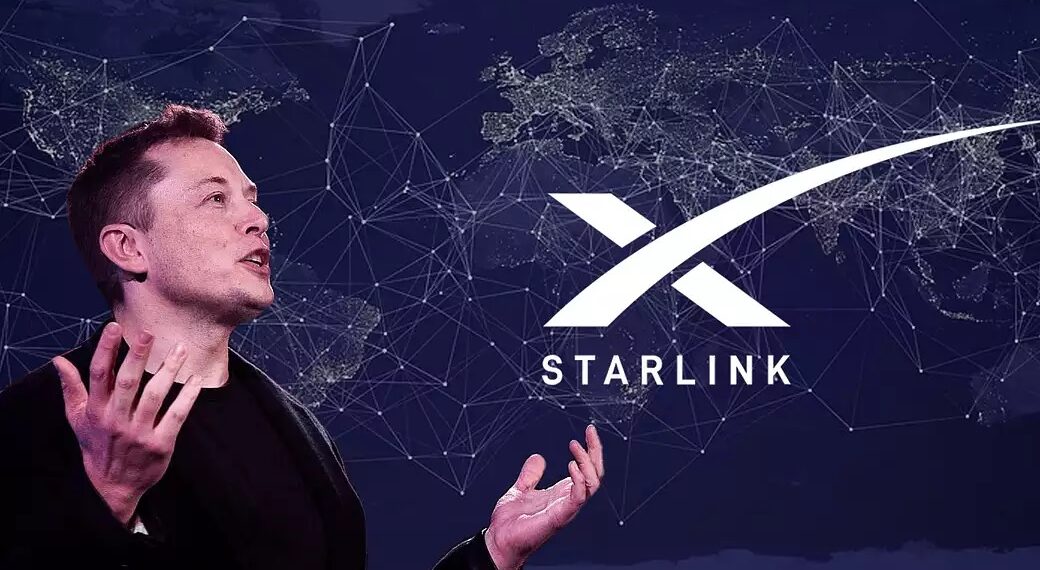Telecom
‘Broadband Access in Nigeria’ Not Broad Enough, Not Qualitative Enough- Report

By peter oluka
Despite Nigeria’s 5+ submarine cables, carrying a combined capacity of 10+ TBPS, Nigeria still suffers from low broadband penetration.
In an attempt to increase penetration, the Federal Government’s Presidential on Broadband drafted a Broadband plan which was eventually enacted into a policy with goal of increasing fixed broadband penetration to 30% by 2018.
Meanwhile, with a reported Broadband penetration of approximately 21%, Nigeria seems to have met her National Broadband Plan target of reaching “by the end of 2017, a fivefold increase in broadband penetration over the 2012 penetration rate (of between 4-6%)”.
However, in its Policy Brief dated June 2017, titled: ‘Broadband Access in Nigeria: Not Broad Enough, Not Qualitative Enough’ Paradigm Initiative Nigeria (PIN) passed a damning verdict on the state of ‘Broadband Nigeria’; although the International Telecommunications Union (ITU) putting fixed broadband penetration in Nigeria at 0.01%, admittedly, the bulk of this broadband access has been through mobile broadband.
Internet penetration in Nigeria is put at 47%, according to the ITU.
According to the Nigerian Communications Commission (NCC), there were just over 90 million active mobile internet subscriptions on GSM and CDMA networks as of April 20175.
The report by PIN continues: Although Nigeria’s broadband plan envisaged that mobile broadband would be the most popular medium for the actualization of the plan, perhaps it was overly optimistic in its plans for the rollout of Terrestrial wireless networks, Fibre, Cable, Digital Subscriber lines and Satellite Networks, given Nigeria’s historic challenges with infrastructure development.
As earlier noted, fixed broadband penetration is 0.01% and infrastructural and policy challenges has limited the effectiveness of Nigeria’s only real claim to a national broadband network – mainly 3G and lately 4G Mobile broadband, resulting in resulting in poor quality of service.
Nigeria’s Systemic Infrastructure Obstacle
Speaking on the backdrop of the report, Babatunde Okunoye, research assistant at Paradigm Initiative, said that Nigeria’s low fixed broadband penetration must be set against the background of the Terabytes of broadband capacity which lay underutilized at landing points of International submarine cable on the Lagos coast.
The successful outlay inland of this capacity, the report observed, has been hindered by factors including unfavourable government policies such as multiple taxation and Right of Way requirements.
“In a country that could only boast 200,000 telephone lines 40 years after independence for a population of over 120 million, Nigeria had always had challenges delivering infrastructural dividends to its citizens.
“The now rested state monopoly Nitel, despite not having to contend with the limiting factors earlier mentioned, and empowered by the biggest spender in the economy (the Federal Government), could only deliver fixed telephone lines to a privileged few (200,000 or 0.001% of the population) over 4 decades”, the report said.
This infrastructure challenge was not peculiar to Telecoms alone, but was also seen in the poor state of critical infrastructure in Nigeria.
Against this background of historical poor infrastructure delivery outcomes in Nigeria, it can be argued that the National Broadband Plan (2013-2018), in its far-reaching plans for an elaborate broadband infrastructure deployment across the nation was overly optimistic in its timeframe.
This is particularly true in its plan for city-wide fibre deployment, which can be as involved as providing fixed telephone line access.
As envisaged by the National Broadband Plan, the best hope of delivering on Nigeria’s broadband plan is by ensuring that the spread of Nigeria’s 3G and relatively new 4G mobile networks which has largely helped broadband penetration to reach 21% is widened and the Quality of Service (QoS) improved.
The Nigerian government is already taking steps to deepen broadband penetration through the licensing of six slots of the 2.6 GHz spectrum for the deployment of 4G services in 2016 and the planned licensing of broadband services on the 5.4 GHz spectrum bank and allocation of 70/80 GHz band (E-band), amongst other plans.
The success of Nigeria’s GSM network is itself quite a story because in some respects, it defied Nigeria’s infrastructure challenges, partly being because it did not require the same level of elaborate layout of infrastructure house to house and street to street as required in fibre deployment for instance; a number of Telco Towers sufficing for each coverage area – plus backhaul infrastructure.
With exactly two years of the Broadband Plan left (2017-2018) and the fixed broadband penetration rate at 0.01%, there is an urgent need to revise the National Broadband Plan for fixed broadband, the report recommended.
“The remaining 2 years also provides the opportunity to solidify the gains of the national spread of mobile broadband.
“A key metric which captures the quality of Internet access in Nigeria is the Average Connection speed, put at 3.9 Mbps (compared to a global average of 7.2 Mbps), according to Akamai’s ‘State of the Internet’ Q1 2017 report”.
“This cannot be divorced from the state of Network infrastructure in the country. In the United States and the United Kingdom for instance, there is an average of 1 Telecommunications base station for 2,300 and 2,100 customers respectively”, the PIN report suggests.
In Nigeria however, there are about 39,000 Telecommunications base stations for a population of over 180 million, an average of 1 for 4,600 consumers7.
The state of Network infrastructure is centrally linked to the poor Quality of Service (QoS) in mobile broadband delivery in Nigeria.
According to the Customer satisfaction survey conducted by the Nigerian Communications Commission (NCC) in 2012, nationally, there were marginally more respondents reporting that their connection speed was “slow or very slow” than those reporting it as “fast or very fast”.
This policy brief, which follows Paradigm Initiative’s first policy brief on broadband9, stresses that the years 2017-2018 provides another opportunity to revise the National Broadband Plan, perhaps extending the target year beyond 2018 in respect of fixed Broadband (fibre), while rallying to meet the targets for mobile broadband in terms of Quality of Service (QoS) as also noted in the plan.
A major hindrance to the scheduled outlay of terabytes of fibre broadband from the Nigerian coast to the Nigerian interior has been the policy bottlenecks of multiple taxation and right of way requirements which have burdened ISPs. In this regard, it is important to call on the Federal Government to get its priorities right.
“The proposed plan for second and third national satellites, in our opinion, is wasteful, because resources allocated for this project can be used to broaden Internet access. We are of the opinion that the government can do with 1 or 2 satellites for now – there is no empirical evidence the current satellite (NigComSat-1) has given a good return on investment and financing planned for a third satellite can be channelled instead to funding tax breaks and right of way abstentions for ISPs. A nation that cannot in the 21st century provide reliable broadband access to the majority of its citizens has no business in space in the first place.
“Another immediate priority for the government will be to formulate policies that will prioritize a marked increase in the spread of 3G/4G networks – given they are the only realistic route for achieving some of the goals of the Broadband Plan within the current timetable.
“The licensing of six slots of the 2.6 GHz spectrum for the deployment of 4G services in 2016 was therefore a step in the right direction. Indeed, the Broadband plan notes that, At this juncture 3G (or HSPA) mobile broadband technology provides the fastest way for the delivery of universal mobile broadband access in Nigeria now and in the near future, while targeting LTE technology for future high capacity networks.
“3G and LTE are indeed the most ideal solutions for leapfrogging Nigeria to high speed broadband delivery
“Therefore all hands must be on deck to ensure that the worthy goal of connecting every Nigerian to a superfast and reliable broadband network is realized.
“Nigeria’s 47% and 21% Internet penetration and broadband penetration rates respectively can be partly explained by the concentration of telecom signals in highly populated urban areas and the neglect of the rural countryside where broadband affordability and consequently demand is a challenge. [Source: OpenSignal 3G and 4G LTE Cell Coverage Map]
“The figure above shows gaps between the National Planned and National Existing Broadband Fibre Infrastructure (37,104 km) in Nigeria. This challenge has been identified by the National Broadband Plan as critical to achieving broadband penetration target of 30% by 2018. [Source: Universal Services Provision Fund/Nigerian Communications Commission]”.
Telecom
Banks, Telcos Mull New Billing Plans for USSD Airtime Payments

Telecom customers will have to pay for the use of Unstructured Supplementary Service Data (USSD) by having their airtime deducted, according to an information obtained by the Guardian.

According to reports, discussions to implement an end-user billing system between telecom providers and deposit money banks (DMBs) are presently in advanced stages.
A system that charges the client directly for utilizing the USSD service instead of the service provider is known as end-user billing.
This implies that, independent of any further fees the bank may impose, the customer’s mobile account (airtime or direct billing) is deducted for the USSD session.
This is a shift from the conventional corporate billing approach where banks were invoiced for USSD usage.
Gbenga Adebayo, chairman, Association of Licensed Telecommunications Operators of Nigeria (ALTON), said to The Guardian that conversations are underway, and the mechanisms are being fine-tuned to suit subscribers, telcos and DMBs.
r billing, which the banks have been supporting for a while, may help prevent accumulated debts, as seen by the current crisis between the banks and telecom providers, according to Adebayo.
Therefore, we have started talking about switching to end-user paying without causing customers’ services to stop working.
The banks now charge you and debit your account when you make USSD (Debit alert for the transfer). Banks won’t debit you again after the talks are over; instead, your airtime will be used immediately. The funds will be deducted from your airtime rather than your account by the banks.
“The discussion has begun; we will work with the banks to agree on a migration plan. The banks have long been demanding a solution to the USSD debt problem, and this will be it. In order to prevent consumers from being charged for services they did not receive, the parties must nevertheless agree that systems must be updated and operations must be transparent.
“The discussion is underway,” he said.
Recall that on September 16, 2019, the Bank Chiefs wrote to ALTON on behalf of the Body of Banks’ Chief Executive Officers (BOBCEO) proposing a “orderly implementation” of end-user charging for bank clients that would “align with the standard practice for USSD billing.”
The bank executives expressed disapproval of splitting the profits from USSD transactions with the telcos in the note to ALTON.
They stated that the service providers, who supply the platform for the USSD service, had suggested deducting N4.50k per 20 seconds from the fees that clients pay the banks. The banks objected, claiming that it would increase the cost by 45% immediately.
However, the dynamics, especially the underlying technology, made the concept unpopular with the telcos at the time.
Instead, the carriers had demanded corporate billing. According to the telecoms, the banks declined to attend a roundtable in 2020 to address the issue and put a definitive stop to it.
As a result, the USSD obligations that are presently being recovered from were greatly exacerbated by the matter’s failure to be resolved five years ago. Since March 16, 2021, subscribers have been charged N6.98K for each USSD transaction.
The authorities instructed DMBs and MNOs to agree on payment options, either a lump amount or instalments, by January 2, 2025, in a circular jointly issued by the Central Bank of Nigeria (CBN) and NCC.
They stated that the payments must be finished by July 2, 2025, if they are chosen.
It is required that 60% of all pre-API bills be paid in full and as a final settlement. By January 2, 2025, a concerned DMB and MNO must agree on payment options (lump amount or instalments).
To be clear, if a DMB suggests instalment payment, it must be based on equal monthly instalments, and the money must be paid by July 2 at the latest.
Just to be clear, if a DMB suggests instalment payment, it must be based on equal monthly instalments, and the money must be paid by July 2 at the latest.
In accordance with past decisions made by the CBN and the NCC, DMBs are required to settle eighty-five percent (85%) of all unpaid invoices between the relevant DMB and MNO (also known as post-API debts) by December 31, 2024, following the implementation of Application Programming Interfaces (API) in February 2022.
Additionally, within a month of the invoice being served, 85% of all subsequent invoices must be paid off.
The NCC will initiate the required regulatory procedures to switch back to End-User Billing (EUB), provided that the directions in Paragraphs 1 and 2 above are satisfactorily implemented and that the agreement between DMBs and MNOs for the switch to EUB is furthered.
Only MNOs and DMBs that fully adhere to the aforementioned paragraphs 1 and 2 will be permitted to switch to EUB. In due order, the CBN and the NCC will offer guidelines on public education initiatives related to the changeover. MNOs are required to implement the “10-second rule” for USSD invoicing until the transitional procedures in paragraph 3 above are finalized.
Thus, any USSD session that lasts less than 10 seconds is not eligible for billing. “DMBs with prepaid billing options have the opportunity to migrate to EUB, subject to the execution of the required regulatory processes,” the authorities added.
Telecom
MTN, Digital Encode, Back eBusinesslife Girls In ICT Campaign

Leading Mobile network operator, MTN Nigeria has reaffirmed its commitment towards ensuring that the gender disparity in the ICT career sector is bridged.

This statement was made with its backing of the 2025 edition of the International Girls in ICT Day campaign being organised by eBusiness Life Communication Limited.
Also, Leading Cybersecurity and Governance, Risk and Compliance (GRC) firm, Digital Encode have also indicated interest in being part of this year’s campaign.
This year’s event, which will hold at the Lagos Oriental Hotel on May 15, 2025, is part of an annual campaign initiated by the International Telecommunications Union (ITU) to sensitise and encourage young women and girls to delve into ICT and related careers, which have been dominated by the male gender. The 2025 theme will be central on “Girls in ICTs: Bridging ALL Divides for an Inclusive Digital Transformation.”
According to the Chief Executive Officer of eBusiness Life Communication and Convener of the event, Mrs. Ufuoma Emuophedaro, the need to sensitise young girls is premised on the need to shape the future of technology and the roles the female gender will play in this.
In Nigeria, a significant gender disparity exists in the tech industry, with women being underrepresented in both education and employment. Studies show that men are almost twice as likely to pursue computer science and technology careers, and women make up only about 20% of the workforce in the ICT sector.
Mrs. Emuophedaro noted that efforts should be made to introduce young girls to career opportunities in technological and technical fields in both the public and private sectors to help them have a wider range of options and contribute their quota in the industry and in the development of the economy.
The support from foremost ICT companies, heavyweights in their sub-sectors, MTN and Digital Encode, underscores the importance of the campaign.
Digital Encode is a leading consulting and integration firm founded in 2003 that specializes in the design, management, and security of business-critical networks, telecommunications environments and other Information Technology (IT) infrastructures. Recognised in the industry for its vendor independent perspective, the firm’s expertise lies in solving multifaceted, complex enterprise network security and audit problems, also with the concept that a company should run its IT organisation as a business.
MTN Nigeria is one of Africa’s largest providers of communications services, connecting over 87 million people in communities across the country with each other and the world. Guided by a vision to lead the delivery of a bold new digital world, MTN Nigeria has been in the forefront of this campaign to build human capacity in Nigeria.
Digital Encode also provides advisory services toward improvements in Information Security Management, Network Security, Vulnerability Management, Penetration Testing, Computer Forensics, Risk Management and Business Continuity Management.
As part of the 2025 event, there will be a practical AI (Robotic) competition among female students from select secondary schools, roundtable discussion, interactive and motivational talk from renowned women ICT professionals, and Schools’ STEM quiz competition, among others.
International Girls’ Day is an initiative launched through ITU Resolution 70 with the idea of creating a global environment that will empower and encourage girls and young women to consider careers in the field of information and communication technologies.
The ITU declared the 4th (fourth) Thursday of April every year as a special day to celebrate and encourage girls and young women to consider careers in ICT, and the society is reminded to support them in their choice.
This year’s event will have top government and private sector executives in attendance.
Telecom
How Starlink Took over Africa’s Largest Internet Market

Starlink has become a major internet service provider in Nigeria, driven by its reliable, high-speed access.

Its success has led to local internet service providers losing subscribers and raising concerns about unfair competition, according to restofworld.org, which reports global tech stories.
Critical institutions have avoided using Starlink’s network because of national security concerns.
In the sprawling electronic market of Lagos’ Computer Village, an item is flying off the shelves: the Starlink kit.
These satellite dishes, with their distinctive white faces and plug-and-play simplicity, represent more than just easy internet availability in Nigeria. They symbolize a technological coup in Africa’s most populous nation, where terrestrial broadband or wireless options are unreliable or inaccessible.
“I have about 20 pieces in the store, but I’m sure they will go before today ends or at the latest tomorrow morning,” Quadri AbdulFatai, a local electronics vendor who claims to have sold more than a thousand units in just 13 months, told Rest of World. “Starlink is very hot now.”
In January 2023, Nigeria became the first African market that Starlink entered.
Two years later, it now ranks second among internet service providers, which are classified separately from large telecom players by the Nigerian authorities.
With over 65,500 users at the end of the third quarter last year, Starlink is second only to 16-year-old Lagos-based ISP Spectranet, according to data from the Nigerian Communications Commission (NCC), the country’s telecom regulator.
At current growth rates, analysts predict Starlink will become Nigeria’s top internet service provider by mid-2026.
The secret to Starlink’s meteoric rise lies in a simple market reality: Nigerians are desperate for reliable, high-speed internet, which local providers have consistently failed to deliver, according to Temidayo Oniosun, managing director at Space in Africa, a market intelligence company focusing on the continent’s space and satellite industry.
Telecom companies and traditional ISPs in Nigeria suffer from frequent outages, sluggish speeds, and spotty coverage, especially in rural areas where terrestrial infrastructure is limited or nonexistent.
“Nigerians want high-speed and reliable internet, and Starlink’s technology offers that better than anyone else,” Oniosun told Rest of World.
“That’s why it is growing at an incredible speed. While the services aren’t the cheapest, launching with different pricing in different African markets shows that Starlink understands the markets.”
Starlink has made investments in building infrastructure in Nigeria. It has built a base station in Lagos and plans to add facilities in neighboring Abeokuta and Port Harcourt, Nigeria’s oil hub.
These stations will enable the company to beam low-latency internet directly to its rapidly growing user base throughout the country. Low latency is the ability of a network to respond with minimal delay.
Starlink’s success has unsettled competitors. When the company increased subscription prices last October, local operators cried foul, accusing regulator NCC of applying double standards by ignoring their requests for tariff reviews.
The regulator eventually granted local providers a 50% tariff increase in January, but customer perception had been damaged.
The regulator has fostered a fair and enabling environment that empowers all licensed operators, including Starlink, “to compete, innovate, and grow in response to market needs,” an NCC spokesperson told Rest of World.
The regulator has fostered a fair and enabling environment that empowers all licensed operators, including Starlink, “to compete, innovate, and grow in response to market needs,” an NCC spokesperson told Rest of World.
The regulator has licensed over 27 satellite-based communications services providers and issued over 90 landing rights to space segment operators, which include established providers like Eutelsat, SES, Viasat, and YahClick.
“In recent times, the commission has observed growing interest from both established global players and new entrants (especially those providing emerging satellite services) seeking to enter the Nigerian market,” the spokesperson said.
“This level of engagement reflects growing investor confidence in Nigeria’s digital economy and the enabling environment provided by the commission.”
Nigeria has 241 licensed ISPs, of which only 124 had active users as of the third quarter of 2024, collectively serving more than 300,000 subscribers, according to NCC data.
Starlink’s arrival has been nothing short of catastrophic for incumbents. Market leader Spectranet lost 8,428 subscribers between the last quarter of 2023 and the third quarter of 2024, while Tizeti lost about 700 in the same period.
While the losses appear modest, they are significant in the context of the small size of the market served by Nigeria’s ISPs.
The internet landscape is more dominated by mobile network operators MTN, Airtel, Globacom, and 9mobile, which collectively serve 132.4 million subscribers, providing both internet access as well as traditional phone services.
The playing field is fundamentally uneven, said Temitope Osunrinde, chief marketing officer at Tizeti.
The challenges for local operators include buying spectrum and building local capacity, hiring talent, and paying multiple taxes. If digging for fiber, they have to contend with multiple local government right-of-way permits and also area goons.
“You can’t compare Starlink with local companies because they don’t have to set up local capacity, nor hire and set up an office,” Osunrinde told Rest of World.
Gbenga Adebayo, chairman of the Association of Licensed Telecommunications Operators of Nigeria (ALTON), believes Starlink’s success reflects not a failure of local providers but “a challenging operating environment, which includes issues such as multiple taxes, multiple regulations, high right-of-way charges, infrastructure vandalism, and the rising cost of foreign exchange.”
Yet for ordinary Nigerians, these industry complaints hold little water compared with the tangible benefits of reliable connectivity. “For me, it was less speed and more concern about constant internet blackouts during meetings,” Olumide Lewis, a Lagos-based tech worker who recently installed Starlink, told Rest of World. “Since we bought our Starlink, we have had some peace of mind. We don’t spend our time thinking about the bad internet again because everything just works.”

 General News2 days ago
General News2 days agoSanwo-Olu, Others Grace Launch of 50-Bed Hospital in Surulere by Avon Medical

 E-Financial2 days ago
E-Financial2 days agoCBN Pumps in Additional $150m into Forex Market to Safeguard Naira

 E-Financial2 days ago
E-Financial2 days agoSEC Says CBEX, other Unregistered Digital Platforms are Illegal

 Telecom2 days ago
Telecom2 days agoMTN, Meta Partner to Enhance Voice and Video Calling Quality

 Broadcasting2 days ago
Broadcasting2 days agoKONFAM 89.5 FM Hits Airwaves in Lagos Tomorrow

 E-Financial2 days ago
E-Financial2 days agoKenyan CBN Okays Access Bank Full Acquisition Of NBK

 E-Business2 days ago
E-Business2 days agoSERAP Calls for Withdrawal of Nigeria’s Data Act Amendment

 General News2 days ago
General News2 days agoHow MTN Nigeria Took 65 PAU Postgraduate Students on Tour of it’s Facilities
























